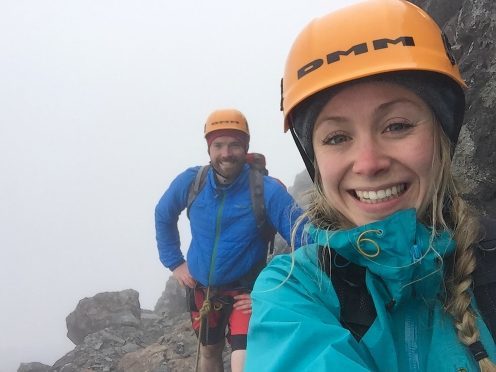An adventurer, who was the first Scot to complete a solo expedition to the South Pole, will return to the extreme cold later this year.
Stonehaven-raised Luke Robertson became the youngest Briton in history to complete the 730-mile trek across the Antarctic last year.
And now, in tandem with his wife, Hazel, the peripatetic duo are aiming to become the first people in history to travel the length of Alaska by human power alone.
The new challenge is called Due North: Alaska, following on from the name of his Antarctic odyssey. It will take 80 days, cover more than 2,000 miles and involves running, cycling and kayaking.
The former Mackie Academy pupil became the first-ever Scot to ski the 730 miles of the South Pole solo and unsupported.
Mrs Robertson, who is also from the coastal town, boasts experience of participating in such endurance events as the 140 mile Arctic Ice Ultramarathon.
The couple, who are both 31, will set off on their trek in May, just weeks after competing in the gruelling Marathon des Sables, a 156-mile foot race through the Sahara desert.
The couple will begin their journey in the very southeast of Alaska.
From the Pacific Ocean, they will head north through various landscapes, made up of rainforests, glaciers and mountains, and through boreal forest.
They will then race through tundra desert high above the Arctic circle, before travelling along the Arctic Ocean to the finish.
The pair, who are ambassadors for cancer charity Marie Curie, will work with Education Scotland during the trip.
They will be blogging, filming and hosting live Q & A sessions while tackling their challenge.
Mrs Robertson added: “We are under no illusions it will be tough but are confident we have the experience, the knowledge and the determination to see it through.”
They have been supported in their efforts by world-famous explorer Sir Ranulph Fiennes.
The latter said: “Hazel and Luke’s journey through one of the last great wildernesses is both daring and unique.
“I applaud both their ambition to educate and inspire others through their exploration and to continue to support Marie Curie’s fundraising efforts.”
